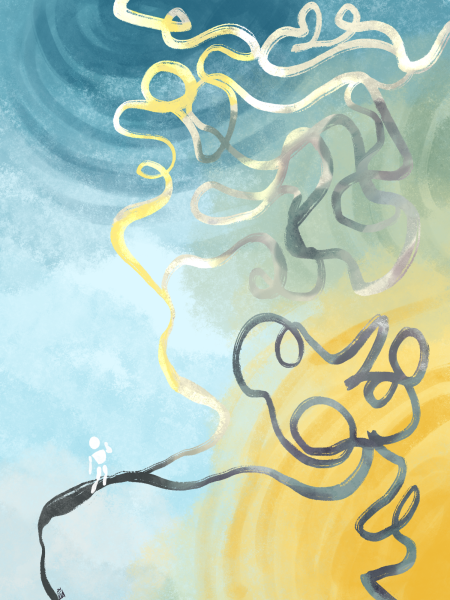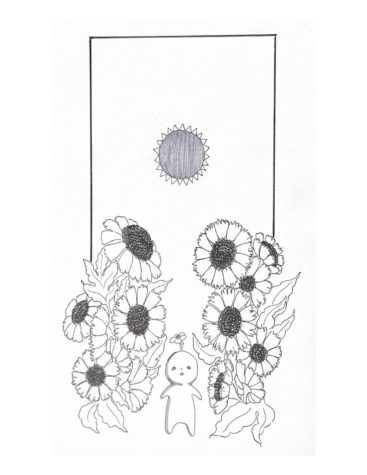Don’t Forget to Write
As you brave the end of winter and settle into the grooves of this quarter, remember to write—and recollect—for yourself.
April 7, 2023
I have a love-hate relationship with writing. As a kid, I would spend summers writing in the heat, letting my hands get stained with smudges of lead as my eyes grew tired from staying up late. I wrote about everything I knew at the ripe age of seven: stories about earnest friendships, subplots involving fictional monsters and witty detectives. The words became unintelligible with lines of dialogue crawling into any blank space.
Now, I type into the Google Doc void. My writing process becomes engulfed in waiting anxiously, procrastinating, until some flash of motivation seizes me to begin. I scribble handwriting on Post-it notes and let old sheets of paper collect dust on my shelf. With heaps of papers and discussion posts and lab reports, writing can feel like a last resort—but it doesn’t have to be. When you inevitably find yourself indoors as wintry weather continues into spring, I urge you to find the time to write.
Here, at college, writing is about satisfying criteria. We write to receive validation, a checkmark, to simply get to the end of the week. Removing these lingering associations with writing, however, can transform it into a practice for yourself. Between the constant demands of university life, there is often little space to exercise creative will for yourself. Even the tweets in your drafts that truly should not see the light of day are crafts of your own. Carving time out of the day to write for yourself can help reaffirm your identity as you wade through the academic and professional world.
As we launch further into the age of three-second-long attention spans and digital avatars, physical writing has become archaic. We’ve all heard of studies demonstrating that writing on paper generates stronger brain activity than typing on a tablet or computer, but how often do we actually take notes on lined paper in class or study with flashcards for an exam? Perhaps writing as a hobby doesn’t appeal to you: start, then, with stepping away from your blue-light display to scribble meaninglessly in a journal, a planner, or even on that stack of neon-colored sticky notes you haven’t touched since first year. Even if you don’t plan to spontaneously pick up a pen anytime soon, it may at least be helpful to reflect on the process of writing itself, to consider the messiness of writing in all its glory.
I recognize the irony in the fact that I am typing into a Google Doc right now, and that this piece will eventually be polished and edited for the public. Nevertheless, throughout the process, I allow myself to bask in the uncertainties. Let the sentences run on and embrace the occasional grammatical error. If we can only think of writing as escapism, it’s time to reevaluate.
Rachel Ong is a third-year in the College.













